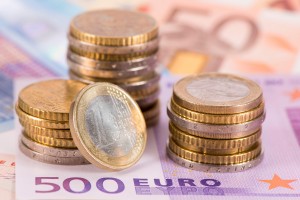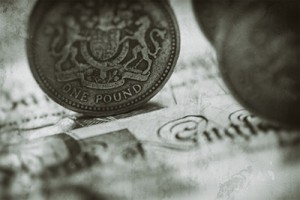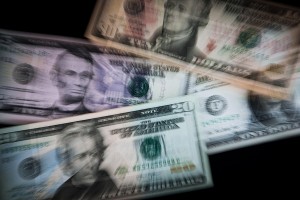What is That Really Makes Successful Traders?
27th September 2017
What is That Really Makes Successful Traders? Welcome to Sensemaking.
a guest article by
Steven Goldstein, Performance & Executive Coach
What is it that really makes a successful trader?
Scores of books, hundreds of journals, and reams of paper have been spent pondering this question. There are many different views, theories and ideas: Strong analytical abilities, high quality research, disciplined risk management, fearless risk taking, prudent planning, emotional control, and a host of other capabilities. All of these may be important contributory factors to success, but on their own these aspects are not enough to create the significant edge which is needed to be a successful trader. There is something else, that ‘somethng special’.
Trading is literally a journey into the unknown. To trade, one has to accept that you will be taking on high levels of ambiguity, uncertainty and complexity. There will be situations, where you are doing little more than taking educated guesses. There are some who say ‘You cannot make money without some form of inside information’. – Not my view, but the view of some academics and of others who have tried and failed.
This view makes an assumption that financial markets are random, and therefore any success is purely down to luck. In other words, one cannot beat the market through skill or ability. However, success in trading is in my opinion down to skill and ability. This is itself based on tacit knowledge learned thorugh time and experience, the skill needed to navigate the unknown on an almost daily basis, and not just survive, but thrive.
Skill is the answer.
In poker, the odds of winning consistently over time are very low, but a small amount of people are able to achieve this. Daniel Negreanu is the most successful player in modern poker, he has won six World Series of Poker bracelets and two World Poker Tour championship titles. Success in poker is not random, if it was, then Negreanu would have been on an extremely unlikely lucky streak.
There are many similarities between trading and poker, perhaps more than there are differences. In poker, at the point of the deal it is random, there is no skill, the randomness of a card shuffle ensures this. However, this changes the moment the first human interaction occurs in the game, the point where the first bet, fold, or pass is made. From then onward, human process is involved. Human behaviour is the game changer, we are no longer working with randomness, but complexity.
The winners in poker, as in trading, are those people who learn how best to navigate and master complexity, and its many sub-factors, uncertainty, risk, volatility, ambiguity.
As in Poker, skill is determinable in Trading.
The nature of complexity bears many similarities to randomness, however in complexity, there is cause and effect, even if determining it is incredibly difficult to fathom. There has been much academic energy exerted over many years trying to prove (or disprove) that skill is a factor in trading success. One of the best examples of this was by noted Behaviour Finance academics, Brad Barber and Terrence Odean.
Barber and Odean were given access to 5 years’ worth of trading data from the Taiwanese Stock Exchange. From this they were able to dissect the activity of tens of thousands of day traders*, and in turn reached a number of conclusions. Amongst these, they found that there was strong evidence of persistent ability amongst a relatively small group of day traders. In other words, skill was a factor. – These traders had strong past performance and were able to consistently earn strong returns large enough to cover transaction costs, and to consistently achieve superior returns. Or as the report said of this very small group of less than 1% of the total day traders, ‘These profitable day traders continue to earn stellar returns’.
Barber and Odean then were then able to repeat this research on a far larger pool of data, this time covering 15 year’s worth of trading data, and including over 400,000 day traders. The results were similar.
Amongst some of the other findings, Barber and Odean found that in a typical six-month period, slightly less than 20% of day traders made money. This is in line with the often-cited percentages, usually ranging from 15-20%, of traders who supposedly make money trading. However, what they found was that most of these winning day trader’s profits were not sufficient to cover their transaction costs, let along provide significant outperformance. The exception was the the small group cited above, where there was enough evidence to suggest that their outperformance was statistically significant and based on skill.
In many ways this is analogous to poker, whereby many different people may win tournaments, but only the very best and most skilled consistently win a high percentage of tournaments and can themselves derive a living from Poker.
Sensemaking: The art of navigating complexity.
So what is it that determines those who ‘are successful’ from those who ‘want to be successful?
Fortunately, this is where my exposure to trading is able to give me some powerful insights into what I believe is the answer.
I myself was a trader for over 20 years, and since hanging up my trading gloves, have been working as a performance coach inside trading firms. This has given me significant access to the insights, behaviours and practices of many hundreds of traders and investment professionals. Whilst there are many different types of trading, and nuances to trading approaches, I have noticed what I believe is the most consistent trait: It is best understood by the term Sensemaking. – Or high quality ‘Sensemaking’ to be more exact.
Sensemaking is the ability or attempt to make sense of an ambiguous situation. More specifically, sensemaking is the process of creating situational awareness and understanding in situations of high complexity or uncertainty in order to make decisions.
Sensemaking goes beyond analysis, rules or discipline. Loosely, I would describe as an ability to navigate extreme uncertainty and to master ‘not knowing’, and then to monetise it.
Psychologist Gary Klein has extensively researched sensemaking, though he prefers the term ‘Naturalistic Decision Making’. In his work, he has studied how people make decisions when faced with highly ambiguous and uncertain situations. Klein spent time with firefighters and fighter pilots to help gain a deeper understanding of how they make quick and accurate decisions based on limited information in situations which could mean the difference between life and death. This article How Pilots Intuitively Make Critical Decisions explores some of Klein’s work.
In my work as a trader and trading coach, I recognise many of the same aspects which Klein describes in his work. Trader’s expertise is based primarily on tacit knowledge learned on the job and through experiences. This is in contrast to the process for solving problems and dealing with challenges in other specialist areas, which require learning rules and procedures.
I have found that many individual traders have their own patterns and behaviours whihc are unique to them. These are crafted and shaped by their learning experiences, coping mechanisms and underlying beleifs and philosophy. What works for one, may not work for another, and vice versa. Trading for each and every individual is a unique experience.
In a previous article, ‘Gut Feel: That Something Special of Successful Traders’, I described one of my own experiences as a trader, which I believe captures how I acted as sensemaker during one of my better trades. In this example analysis of the market was just one part of the process, the actual trade itself was based on spur of the moment decision-making, sensing the environment, making rapid assessments, and acting upon them in the moment.
Traders as Sensemakers
Financial markets are themselves complex, uncertain and ambiguous. As in the sentiment expressed by Gordon Gecko in the film Wall Street, ‘You’re walking around blind without a cane, pal’. – Trying to navigate markets is fraught with danger. Good analysis, a strong method or system, prudent risk and money management, working in a way congruent to your personality, being structured and controlled, these are all vital aspects of a good trading process. However, alone they are not enough to excel. Great traders and investors have that ‘something else’, that ‘something special’, that ability to master uncertainty and ambiguity. It is in my opinion, their sensemaking skills and ability. To return to Gordon Gecko, that is ‘their cane’.
Sensemaking can be developed, but it takes time to learn and master.
Winning in the markets does relies ultimately on skill and ability, it is the only legal real edge anyone can have. If you want to improve how you are as a trader, then start understanding and working on your sensemaking capabilities. – This is a subject and topic I will return to in future articles.
*Do Individual Day Traders Make Money? Evidence from Taiwan. http://www.econ.yale.edu/~shiller/behfin/2004-04-10/barber-lee-liu-odean.pdf
Article by Steven Goldstein. Performance, Executive Team Coach and OD Consultant specialising in Financial Markets front-office businesses.
If you have enjoyed reading this article and would like to know more about our ‘Risk Performance Coaching and Consulting’ work with Traders, Investment Professionals, and Financial Market Businesses, please click on the above image, email info@alpharcubed.com or visit our website www.alpharcubed.com.






